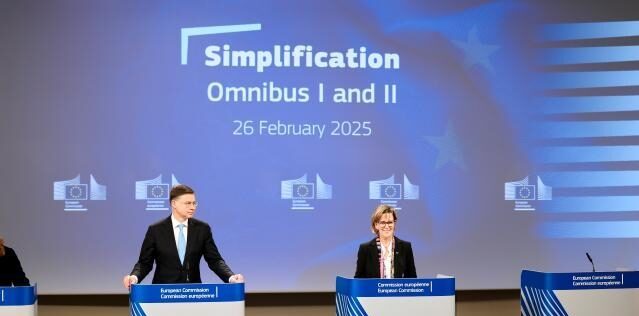The Progressive Post
Corruption and anti-corruption in Europe: trends and prospects

Corruption is an ever-present problem and a persistent challenge in Europe. In addition, awareness of its negative and systemic effects is increasingly widespread. It undermines democratic institutions, economic stability, public trust and the ability to pursue environmental policy and climate change mitigation objectives, even threatening European security. Moreover, it compromises the values of the rule of law, fundamental freedoms and human rights, potentially becoming a tool for capturing democratic institutions by economic interests, foreign powers, or autocratic regimes.
This growing awareness has not yet been matched by consolidated European action, although the approval of the European anti-corruption directive represents a pivotal moment. Corruption is a complex phenomenon: the term functions as an umbrella concept encompassing various forms of illicit conduct by public officials (bureaucrats and politicians) who betray public interest to favour private ones, obtaining personal benefits. This notion extends beyond bribery to include other manifestations such as extortion, embezzlement, influence peddling, clientelism, abuse of power, conflicts of interest and the capture of decision-makers by pressure groups.
Corruption affects individual member states and the functioning of European institutions, where transparency and accountability are essential for maintaining legitimacy and trust. The problem is further amplified by European procedures, which are often implemented through the ‘indirect’ administration of member states. Incidents such as the misuse of European funds or fraudulent activities related to public procurement (for example in the Next Generation EU programme) highlight the vulnerability of EU financial systems to corruption. Simultaneously, the European Union, as a prominent global regulatory actor and a hub for regulating European markets, faces significant interest pressures that may result in tolerated forms of public decision-making influence.
Corruption thus challenges both European and national institutions of member states. This dual perspective is evident in the ‘package’ of interventions adopted at the European level in 2023, which includes the joint communication on anti-corruption policies for and within the Union and the proposed anti-corruption directive targeted at member states (currently pending adoption).
This second aspect warrants particular attention. Faced with countries increasingly influenced by populist policies and less committed to the principles of the rule of law, a more incisive European role in shaping national administrations and institutions is essential. The pursuit of greater integrity and transparency is undoubtedly in the Union’s interest, but it faces significant obstacles. These include a fragmented European policy and, above all, the lack of adequate European competencies concerning the construction of national administrative systems. Conversely, member states resist a more prominent role for European rules over their public administrations. Consequently, common anti-corruption regulations, where present, are often sectoral or fragmented and inadequate, stemming from interventions justified by internal market competencies. Developing more coherent and organic approaches is relegated to soft regulation mechanisms and governance processes that only partially succeed in influencing member states.
While European rules and policies increasingly exhibit uniform characteristics, the capacity and integrity of national administrations remain highly differentiated. Indices such as Transparency International’s Corruption Perception Index and the University of Gothenburg’s Quality of Government Index reveal that some member states rank among the least corrupt globally, while others struggle with systemic corruption.
Although numerous member states (or those preparing to join) have established organic systems to prevent and combat corruption, these require strengthening and support through Union initiatives. Thus far, European action has been implemented through various tools which are significant but overall inadequate. For instance, the European Commission’s Annual Rule of Law Report evaluates the situation in all member states, including specific chapters on anti-corruption measures. This mechanism fosters dialogue and creates peer pressure to address identified shortcomings, but it often lends itself to delaying and evasive strategies, relying primarily on data collected by national institutions.
The introduction of a conditionality mechanism tied to the rule of law links the disbursement of EU funds to compliance with rule-of-law principles. This instrument aims to prevent fund misuse by withholding financial support to non-compliant member states. However, doubts persist regarding the effectiveness of such measures, except in the case of candidate countries for Union accession, where these evaluations carry more binding implications.
In this context, the European Commission’s 2023 proposal for a directive aims to strengthen the fight against corruption in the EU by introducing binding rules for member states on preventing, investigating, and repressing corruption. The directive emphasises harmonising definitions of corruption-related crimes and corresponding sanctions, ensuring greater consistency across member states. Furthermore, it lays the groundwork for strengthening corruption prevention systems by developing principles and mechanisms already present in the United Nations Convention against Corruption (UNCAC).
Starting from the Commission’s proposal, the two co-legislators, Parliament and Council, approved different texts, which are the result of opposing visions. While the text adopted by Parliament greatly enriches the original proposal, especially as regards prevention measures, the text proposed by the Council is more modest in innovative content and includes significant concessions to member state requests (for example making the criminalisation of abuse of office optional in order to accommodate Italy, where the crime was recently abolished). The evolution of the European anti-corruption framework thus hinges on defining a final text (for which the start of the trilogue is awaited), which is hoped to align closely with the Parliament’s version, but which primarily depends on the directive’s adoption to overcome the current impasse.
In facing global challenges, combating corruption assumes strategic importance for European democracy, yet significant uncertainties persist in the actions of European institutions, constrained by governmental components and political resistance. The hope is that Europe, particularly the current Commission, will overcome these obstacles and rise to the challenges of this critical historical moment. It needs to do this with the awareness that the challenge of corruption must be taken up not only and not so much as a question of criminal policy, but as an issue that calls into question the quality of administrations of the member states, and the integrity and transparency of their institutions as a matter of European interest.
Photo credits: Shutterstock.com/Anton P Daskalov




